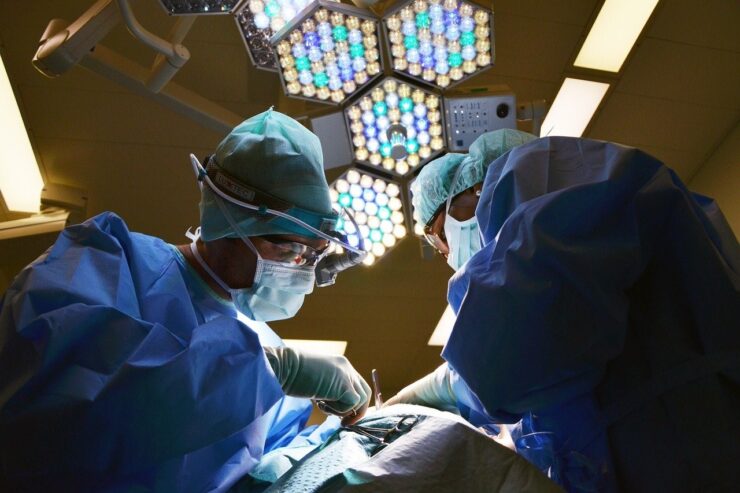The gallbladder is a tiny pouch located beneath the liver. Bile produced by the liver is stored in the gallbladder. The gallbladder is empty and flat after meals, like a deflated balloon. The gallbladder may be full of bile and the size of a little pear before a meal. The gallbladder squeezes stored bile into the small intestine in response to signals via a system of tubes known as ducts. Bile aids fat digestion, although the gallbladder is not required. In an otherwise healthy person, removing the gallbladder usually produces no noticeable difficulties with health or digestion, while there is a slight risk of diarrhea and fat malabsorption.
Gallbladder Conditions
· Gallstones (cholelithiasis):
Gallstones (cholelithiasis): Gallstones are common and typically innocuous, but they can occasionally cause pain, nausea, or inflammation.
· Cholecystitis:
Gallbladder infection is usually caused by a gallstone in the gallbladder. Cholecystitis produces extreme discomfort and fever, and if the illness persists or recurs, surgery may be required.
· Gallbladder Cancer:
Gallbladder carcinoma is a type of cancer that affects the gallbladder. The gallbladder can be affected by cancer, albeit it is uncommon. It is difficult to diagnose, and it is frequently discovered only after symptoms begin. Symptoms can be similar to gallstones.
· Gallstones Pancreatitis:
The channels that drain the pancreas are blocked by an impacted gallstone. The pancreas becomes inflamed, which is a dangerous condition.
Gallbladder Tests
- HIDA scan
- Endoscopic retrograde cholangiopancreatography (ERCP)
- Magnetic resonance cholangiopancreatography (MRCP)
- Abdominal X-ray
- Endoscopic ultrasound
Treatments for Gallbladder
- Gallbladder Surgery(Cholecystectomy)
- Antibiotics
- Chemotherapy and Radiation Therapy
- Ursodeoxycholic Acid
- Extracorporeal Shock-Wave Lithotripsy
- Contact Solvent Dissolution
Gallbladder Disease Symptoms
Gallbladder disease can cause a variety of symptoms. These are some of them:
· Pain
Pain is the most prevalent symptom of gallbladder disease. The pain is commonly felt in the mid-to upper-right part of your abdomen. It can be minor and only happen once in a while, or it can be severe and occur frequently. The discomfort may radiate to other parts of the body, such as the back and chest, in certain situations.
· Vomiting or nausea
Nausea and vomiting are common signs of gallbladder disorders of any kind. Only chronic gallbladder illness, on the other hand, can produce digestive issues like acid reflux and gas.
· Chills or a fever
Chills or an inexplicable fever could be signs of illness. If you have an infection, you need to get it treated as soon as possible before it gets worse and becomes harmful. If the infection spreads to other parts of the body, it might be fatal.
· Chronic Diarrhea
For at least three months, having more than four bowel motions each day could be a marker of chronic gallbladder disease.
· Jaundice
Jaundice, or yellow-tinged skin, could indicate a blockage or stone in the common bile duct. The bile duct connects the gallbladder to the small intestine and is known as the common bile duct.
· Stools or urine that is unusual
A common bile duct clog can be identified by lighter-colored faces and black urine.
Diet for gallbladder
If you are having trouble with your gallbladder, you might want to change your diet. The following foods can worsen gallbladder disease:
- trans fats and other harmful fats-rich foods
- items that have been processed
- White bread and sugar are examples of refined carbs.
Instead, aim to base your diet on the following:
- fruits and vegetables high in fiber
- foods high in calcium, such as low-fat dairy and dark leafy greens
- berries and other vitamin C-rich foods
- Tofu, beans, and lentils are examples of plant-based protein.
- Nuts and fish are good sources of healthful fats.
- Coffee, which lowers your chances of gallstones and other gallbladder problems.
When should you see a doctor?
Gallbladder symptoms may appear and disappear. If you have had a gallbladder problem previously, you are more likely to get one again. Despite the fact that gallbladder issues are rarely fatal, they should be treated. If you act quickly and see a doctor, you can save your gallbladder problems from getting worse. The following symptoms should cause you to seek medical help right away:
- Pain in the abdomen that lasts at least 5 hours
- jaundice
- stools that are light in color
- If you are experiencing sweating, a low-grade fever, or chills, see your doctor.
A Singapore colon surgeon is skilled at treating colon and rectal disorders surgically and non-surgically. A colorectal surgeon, also called a proctologist, is a general surgeon who has received additional training in the diagnosis and treatment of illnesses of the colon, rectum, and anus. Singapore Colon surgeons are skilled at treating colon and rectal disorders surgically and non-surgically. Colon and rectal surgeons diagnose and treat both benign and malignant disorders, as well as doing routine colon screenings.
Where to get a Gallbladder Surgery in Singapore?
Gallbladder needs proper treatment for preventing the further growth of Gallbladder in the body. A Gallbladder Surgeon Singapore can help you with this condition. One should consult with a doctor and ask about the complete procedure of Gallbladder removal. In any scenario, a Gallbladder Surgeon Singapore will have the tools and knowledge to examine your problem.




























